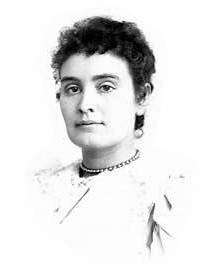A Quote by Jacques Maritain
The poet knows himself only on the condition that things resound in him, and that in him, at a single awakening, they and he come forth together out of sleep.
Related Quotes
Man... knows only when he is satisfied and when he suffers, and only his sufferings and his satisfactions instruct him concerning himself, teach him what to seek and what to avoid. For the rest, man is a confused creature; he knows not whence he comes or whither he goes, he knows little of the world, and above all, he knows little of himself.
Society is to the individual what the sun and showers are to the seed. It develops him, expands him, unfolds him, calls him out of himself. Other men are his opportunity. Each one is a match which ignites some new tinder in him unignitible by any previous match. Without these the sparks of individuality would sleep in him forever.
...it is only when a man goes out into the world with the thought that there are heroisms all round him, and with the desire all alive in his heart to follow any which may come within sight of him, that he breaks away... from the life he knows, and ventures forth into the wonderful mystic twilight land where lie the great adventures and the great rewards.
Men are four;
He who knows and knows not that he knows. He is asleep; wake him.
He who knows not and knows not that he knows not. He is a fool; shun him.
He who knows not and knows that he knows not. He is a child; teach him.
He who knows and knows that he knows. He is a king; follow him.
The heights by great men reached and kept
Were not attained by sudden flight,
But they, while their companions slept,
Were toiling upward in the night.
There are four types of men in this world: 1. The man who knows, and knows that he knows; he is wise, so consult him. 2. The man who knows, but doesn't know that he knows; help him not forget what he knows. 3. The man who knows not, and knows that he knows not; teach him. 4. Finally, there is the man who knows not but pretends that he knows; he is a fool, so avoid him.
there's a bluebird in my heart that wants to get out but I'm too clever, I only let him out at night sometimes when everybody's asleep. I say, I know that you're there, so don't be sad. then I put him back, but he's singing a little in there, I haven't quite let him die and we sleep together like that with our secret pact and it's nice enough to make a man weep, but I don't weep, do you?
The godly man contrarily is afraid of nothing; not of God, because he knows Him his best friend, and will not hurt him; not of Satan, because he cannot hurt him; not of afflictions, because he knows they come from a loving God, and end in his good; not of the creatures, since "the very stones in the field are in league with Him;" not of himself, since his conscience is at peace.
Achievement comes to someone when he is able to do great things for himself. Success comes when he empowers followers to do great things with him. Significance comes when he develops leaders to do great things for him. But a legacy is created only when a person puts his organization into the position to do great things without him.
Let a man choose what condition he will, and let him accumulate around him all the goods and gratifications seemingly calculated to make him happy in it; if that man is left at any time without occupation or amusement, and reflects on what he is, the meagre, languid felicity of his present lot will not bear him up. He will turn necessarily to gloomy anticipations of the future; and unless his occupation calls him out of himself, he is inevitably wretched.
For a young man, sleep is a sure solvent of distress. There whirls not for him in the night any so hideous phantasmagoria as will not become, in the clarity of the next morning, a spruce procession for him to lead. Brief the vague horror of his awakening; memory sweeps back to him, and he sees nothing dreadful after all. "Why not?" is the sun's bright message to him, and "Why not indeed?" his answer.
When you come to knowing God, the initiative lies on His side. If He does not show Himself, nothing you can do will enable you to find Him. And, in fact, He shows much more of Himself to some people than to others—not because He has favourites, but because it is impossible for Him to show Himself to a man whose whole mind and character are in the wrong condition. Just as sunlight, though it has no favourites, cannot be reflected in a dusty mirror as clearly as in a clean one.








































